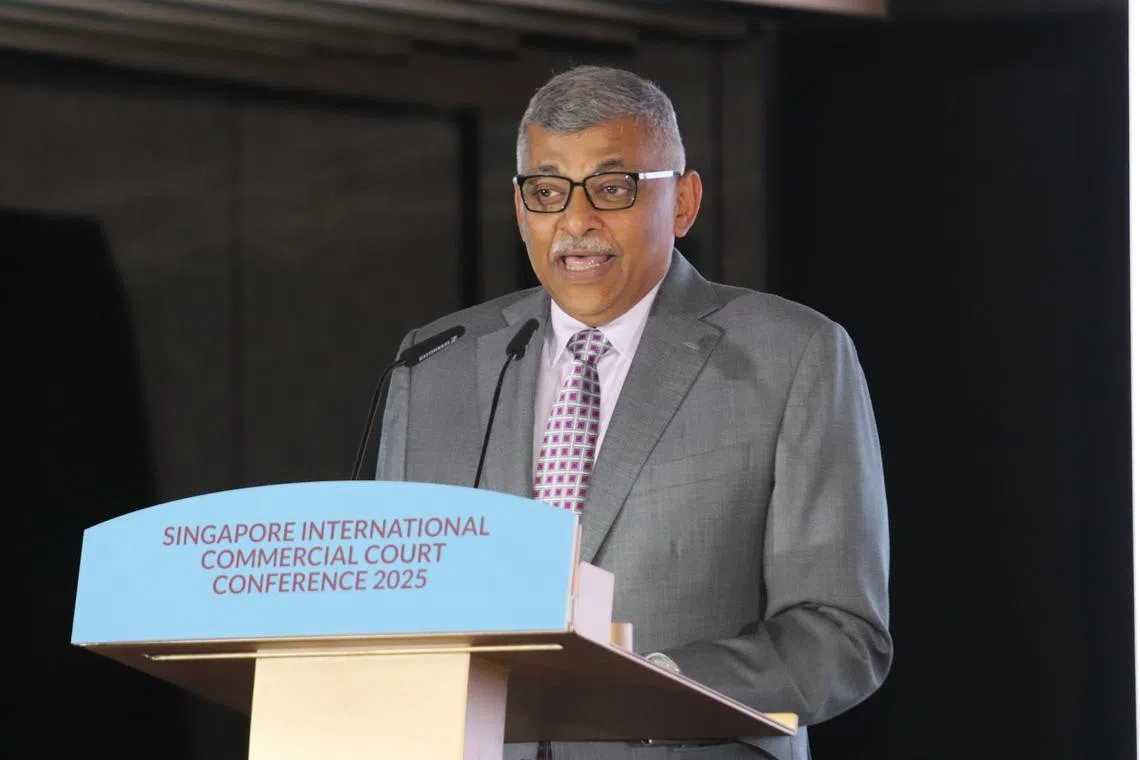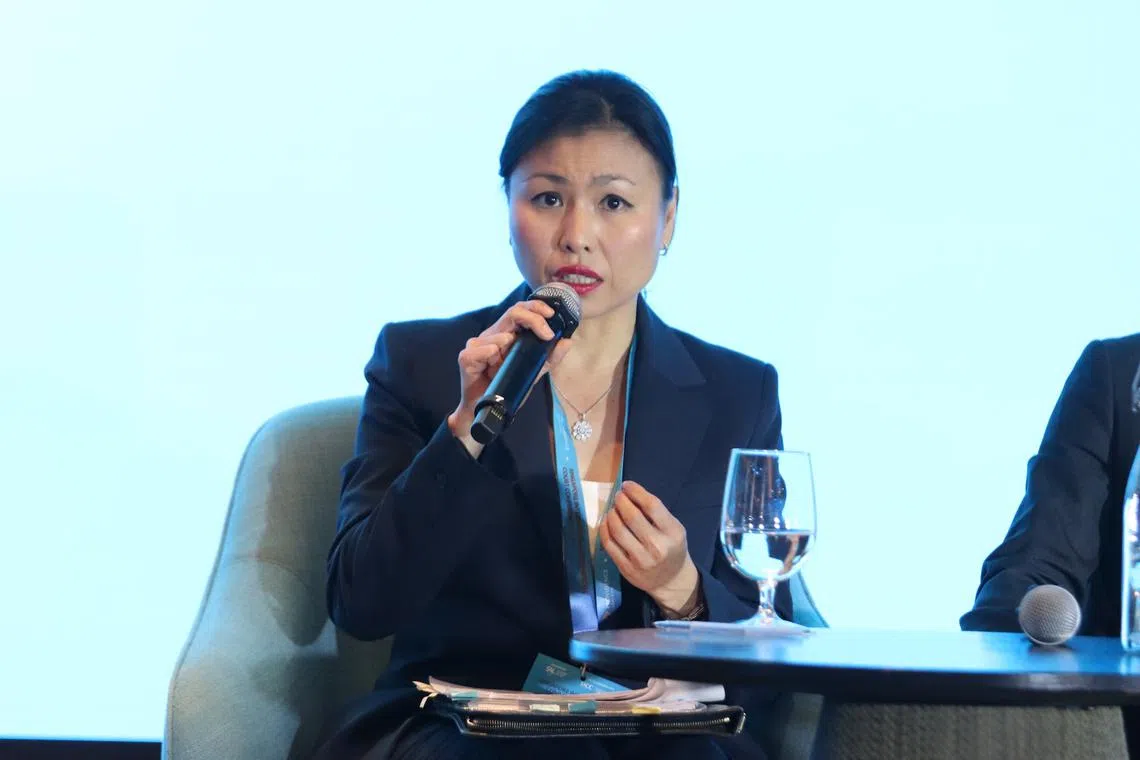Cross-border disputes are growing in complexity. Who can help businesses resolve them?
As transnational disputes become more frequent and complex, the Singapore International Commercial Court is adapting its procedures and processes to meet the changing needs of businesses
Kareyst Lin &
Kareyst Lin
An algorithmic software unintentionally gave UK-based company B2C2 an unexpected windfall – and a legal battle.
The transaction raised questions of whether the windfall was “unjust”, among other issues.
It formed the crux of a 2017 landmark dispute between B2C2 and Singapore cryptocurrency exchange Quoine. B2C2 is a market maker that uses algorithms to trade cryptocurrencies with minimal human intervention.
On April 19, 2017, due to a technical glitch on Quoine’s platform, B2C2 sold cryptocurrencies ethereum for bitcoin at 250 times the prevailing market rate – of around 0.04 bitcoin for one ethereum. B2C2 eventually executed 13 trades.
The next day, Quoine discovered the anomaly and unilaterally reversed the transactions. B2C2 then sued Quoine for breach of contract and breach of trust.
The case was heard in the Singapore International Commercial Courts (SICC). A division of the General Division of the Singapore High Court, the SICC was established in 2015 to meet the growing demand for transnational dispute resolution through litigation.
Navigate Asia in
a new global order
Get the insights delivered to your inbox.
On March 14, 2019, the SICC ruled in favour of B2C2 and found Quoine liable for breach of contract and breach of trust by reversing the trades. Quoine appealed against the SICC’s decision.
On Feb 24, 2020, the Singapore Court of Appeal upheld the judgment on the breach of contract claim, but reversed the decision on the breach of trust claim.
As the first legal dispute involving cryptocurrencies in Singapore, the case raised novel legal questions, such as “how established legal doctrines, like the doctrine of unilateral mistake, ought to apply”, said Chief Justice Sundaresh Menon.
This is just one example of how commercial disputes are becoming more complex, he said, adding that this is caused and worsened by technological advancements.
In his opening address at the SICC Conference 2025, the Chief Justice highlighted key trends in commercial disputes today.
The conference, jointly organised by the Singapore Academy of Law and the SICC, took place on Jan 14 and 15 at the Parkroyal Collection Marina Bay Singapore. It also marks the 10th anniversary of the SICC.
It drew over 420 delegates from 19 jurisdictions, with Law and Home Affairs Minister K. Shanmugam participating in a fireside chat, and Senior Minister Lee Hsien Loong gracing the conference dinner as the guest of honour.
About 30 speakers and panellists – including judges and legal practitioners – from Singapore and abroad gathered to discuss the evolving landscape of cross-border disputes. They also offered perspectives from various jurisdictions on how the legal system can adapt to provide more effective solutions for businesses.

An open, collaborative forum
Established on Jan 5, 2015, the SICC aims to provide a neutral forum for handling cross-border commercial disputes, including those governed by foreign law.
The SICC is part of the Supreme Court of Singapore and a division of the General Division of the Singapore High Court.
What sets it apart from other courts? Among other things, a diverse panel of local and international judges from both the common law and civil law traditions, and the adoption of international best practices for commercial disputes, said Chief Justice Menon.
The SICC turns 10 this year. Beyond establishing itself as the leading forum for court-based international commercial dispute resolution, says the SICC, it will continue to play a key role in shaping the broader development of transnational commercial justice.
In March last year, Singapore signed a bilateral treaty with Bahrain to collaborate on the formation of the Bahrain International Commercial Court (BICC).
In November 2024, a bill was passed to establish the International Committee of the SICC, which will hear prescribed civil appeals from foreign courts in other jurisdictions, such as from the BICC.
“(Cross-border) disputes have become more expensive, protracted and resource-intensive. There is… a pressing need for us to think of new and innovative tools and methods to manage and if necessary, downsize these disputes.”
Chief Justice Sundaresh Menon
In today’s globalised economy, cross-border commercial disputes are becoming…
- More internationalised
The internationalisation of commercial disputes is not new, said Chief Justice Menon. But moving forward, there will likely be a greater diversity of disputes spanning multiple jurisdictions.
This comes as the world shifts from a unipolar to a multipolar one, he explained, “with countries and businesses starting to reconfigure and diversify their trade and supply chains to manage their risks”.
Justice Philip Jeyaretnam, president of the SICC, added that “patterns of trade and investment, in the context of geopolitical fissures, are changing and disputes will need to be resolved, with international commercial courts playing a central role”.
- More technically complex
Cross-border disputes are now more complex because of the explosion of data and emerging technologies like blockchain and artificial intelligence. How will this affect businesses seeking dispute resolution?
“Complexification threatens the quality of adjudicative decisions,” said Chief Justice Menon, as there’s a “finite limit to how much information any human can process”.
There is a need to reduce the risk of errors, or to correct them when they arise, “by expanding the number of adjudicators for particularly complex cases, or by ensuring that there is a robust appellate mechanism that is available”, he added.
- More drawn out
When cross-border disputes arise, they tend to be time-intensive. But businesses want fast resolutions, Justice Nallini Pathmanathan from the Federal Court of Malaysia noted.
Justice Vivian Ramsey of the SICC echoed this sentiment, citing the increased complexification of commercial disputes and the need to keep cross-border dispute resolution fit for this purpose, such as the SICC’s Technology, Infrastructure and Construction List and its collaborations with other dispute resolution institutions.

A better route to resolve disputes
So who can businesses turn to for fair, efficient, and effective resolution?
Panellists and speakers at the SICC Conference 2025 discussed how litigation through international commercial courts (ICCs) can help address complex cross-border disputes.
This can be done through:
- Enforceability of judgments
In transnational commercial disputes, securing a judgment is only half the battle, said Justice Jeyaretnam. “There must be effective recognition and enforcement of commercial judgments.”
Speaking as the guest of honour at the conference dinner, SM Lee noted the rising prominence of ICCs over the past two decades.
Businesses have choices, but will “naturally” prefer one that is “hosted in stable countries that themselves manifest the rule of law”, he said.
Singapore, with its strong rule of law, is one. “(Here), businesses enjoy commercial certainty, operating with confidence that contracts will be enforced, (and) disputes resolved expeditiously and impartially,” SM Lee added.
Justice Jeyaretnam highlighted that SICC judgments, which are superior court Singapore judgments, are “broadly enforceable around the world without any relitigation or reconsideration of the merits on which judgment has been given”.
- Robust appellate mechanisms
Arbitration has traditionally been the dispute resolution platform of choice for businesses.
But Senior Counsel Koh Swee Yen, partner at WongPartnership LLP, observed a growing reluctance among clients to choose arbitration. The key concern: “The lack of an appeal mechanism,” she said.
For businesses, the right to appeal is a practical necessity, especially in high-value or novel disputes – such as the Quoine vs B2C2 case, the first legal dispute involving cryptocurrencies in Singapore.

Chief Justice Menon acknowledged that with the increasing complexity of disputes, “even the best of judges may sometimes make errors, especially when issues are wide-ranging and may not always have sufficiently crystallised at first instance.”
He noted that a key feature of the SICC is its appeal mechanism. The SICC’s Court of Appeal typically sits as a three-judge panel, comprising two Singapore judges and one international judge.
But when the issue is novel or particularly complex, such as in the Quoine vs B2C2 case, the SICC may convene an enlarged panel of five judges.
- Evolving procedures, processes and remedies
How can ICCs be more user-centric in their processes and procedures?
One way is to offer more transparency in case management processes, suggested Ms Koh.
She explained that users of ICCs often come from diverse legal traditions and jurisdictions, with cases involving various parties, including state entities. This diversity adds layers of complexity to the process.
Ms Koh highlighted the SICC’s flexible rules on document production. For example, users can, with the other party’s consent, “dispense with the primary evidence rule, because (it) really adds to the cost, if you have to prove and show the original of every document”.
Chief Justice Menon also noted that the SICC continually adapts its procedures, processes and laws to serve the evolving needs of its users.
This includes a “willingness to embrace and adopt international best practices in dispute resolution, regardless of their origin”, he added.
This was produced in partnership with the Singapore International Commercial Court
- Find out more about the Singapore International Commercial Court and how it aims to help businesses resolve disputes in a fair, just and efficient manner.
Decoding Asia newsletter: your guide to navigating Asia in a new global order. Sign up here to get Decoding Asia newsletter. Delivered to your inbox. Free.
Share with us your feedback on BT's products and services
